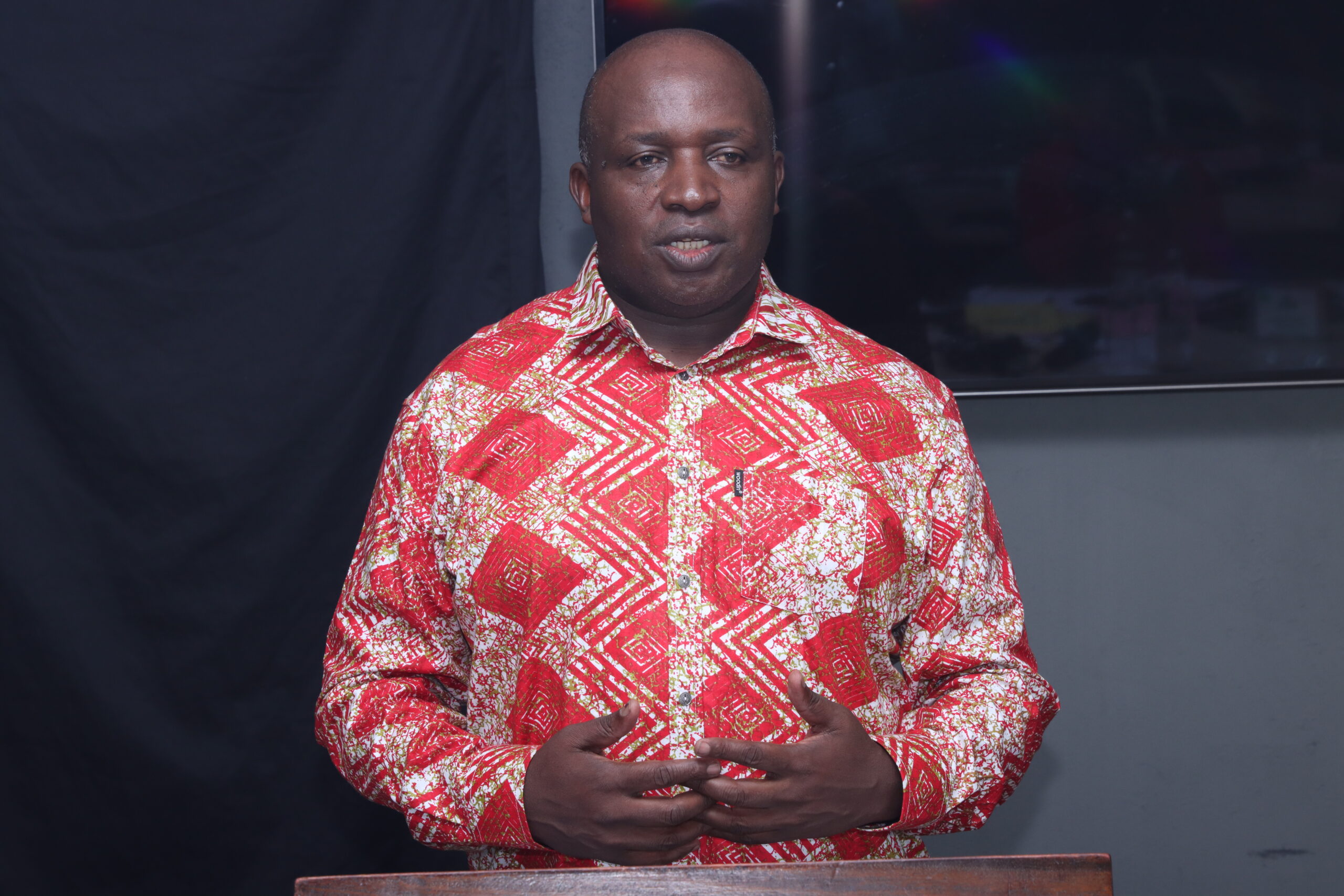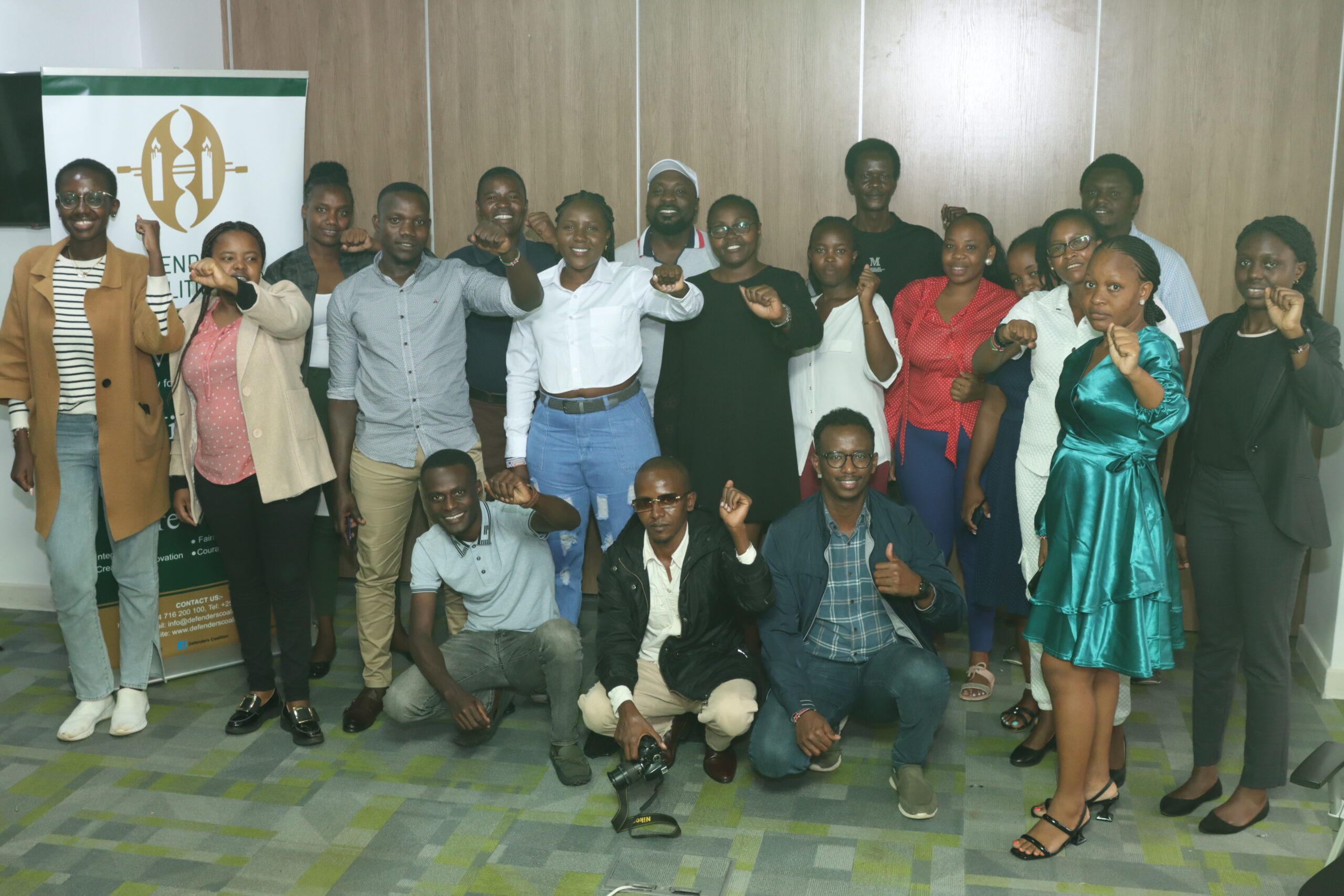In a world where the pursuit of justice often faces daunting obstacles, the Defenders Coalition stands as a steadfast advocate for human rights and equality. Recently, we had the privilege of convening a two-day training on sustainable journalism for human rights where twenty journalists were trained on human rights and how to ensure their security in the line of duty. The training began with an opening speech from the Executive Director of the Defenders Coalition, Kamau Ngugi, whose impassioned remarks shed light on the crucial role of journalists in shaping a more just society.

As his speech unfolded, the Executive Director emphasized the urgent need to expand the reach of press clubs and grassroots initiatives, empowering journalists to be at the frontline in the fight for justice. “We need to build a wider press club and implement them at the grassroots level so that they can be the Defenders Coalition’s point of entry,” he remarked. “This grassroots approach ensures that the voices of the marginalized are heard and their rights protected.”
On the eve of World Press Freedom Day, the Executive Director issued a reminder to the government: “The government must protect everyone, including journalists, and not harass and persecute them.” It’s a clarion call for accountability and respect for freedom of the press, a cornerstone of democratic societies.
Furthermore, the Executive Director called upon journalists to join forces with human rights defenders in shedding light on injustices. “Human rights defenders also report these injustices, but they do not have a platform similar to what journalists have to amplify these stories as they represent the voices of their communities,” they noted. This rallying cry underscores the importance of solidarity and collaboration in amplifying marginalized voices and holding power to account.
As we commemorate World Press Freedom Day this year, he reflected on the critical role of journalism in addressing the environmental crisis facing our planet. Under the theme “A Press for the Planet: Journalism in the Face of the Environmental Crisis,” he recognized the vital role journalists play in raising awareness, holding leaders accountable, and driving action to protect our environment.
Kenya is facing unprecedented environmental challenges, from the ongoing floods to the concerns of land loss in areas inhabited by marginalized communities such as the Mau and the emerging grey area of carbon credits. These issues pose significant threats to ecosystems, communities, and future generations. Journalists have a crucial role to play in reporting on these issues, raising public awareness, and driving meaningful change.
Journalism has the power to shine a light on injustices, amplify the voices of affected communities, and hold governments accountable for their actions. Through investigative reporting and compelling storytelling, journalists can inspire action to address the root causes of environmental degradation and other human rights issues.

However, journalists often face significant challenges in reporting on these issues. As highlighted in the sessions on digital and physical security, they may encounter censorship, threats, and intimidation from governments or individuals, and vested interests seeking to suppress information. Despite these obstacles, journalists continue to courageously uncover the truth and advocate for accountability and better governance.
On this World Press Freedom Day, let us reaffirm our commitment to defending press freedom and supporting journalists who are at the forefront of the fight for justice. Together, we can harness the power of journalism to call for better leadership and build a brighter future for all. We also make a clarion call to all journalists to work closely with human rights defenders who simply lack a platform to amplify the stories and the voices of their silenced and suppressed communities.